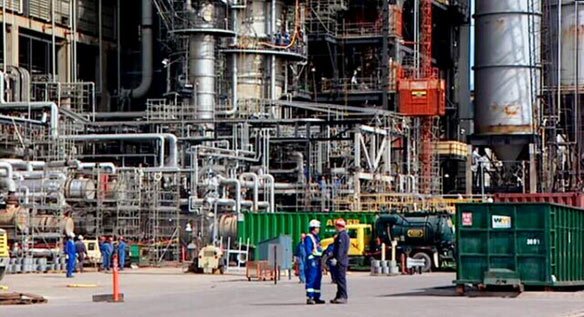
London — Energy giant Royal Dutch Shell vowed to eliminate net carbon emissions by 2050, raising its ambition from previous targets, as its oil output declines from a 2019 peak.
The Anglo-Dutch company is in the midst of its largest overhaul yet as it prepares to expand its renewables and low-carbon business in the face of growing investor pressure on the oil and gas sector to battle climate change.
Shell last year laid out a plan to reach net zero by 2050, in line with the Paris climate agreement and European Union ambitions, but it said the goal depended on its customers.
In a strategy update on Thursday, Shell outlined plans to curb its emissions through rapid growth of its low-carbon businesses, including biofuels and hydrogen, although spending will stay tilted towards oil and gas in the near future.
“We will use our established strengths to build on our competitive portfolio as we make the transition,” CEO Ben van Beurden said in a statement.
Investors welcomed the upgraded targets.
“Shell’s net zero target is industry-leading and comprehensive as it covers all their carbon emissions,” Adam Matthews, Director of Ethics & Engagement for the Church of England Pensions Board, who led investor engagement with Shell, said in a statement.
Shareholders have an advisory vote on Shell’s transition plan at this year’s general meeting, an industry first, Matthews added.
Although such votes would be non-binding, investors see them as a mechanism to hold management publicly accountable for their progress on meeting targets to cut emissions.
Shell shares were down 1.9% at 1142 GMT at 1337 pence, dragging on the FTSE 100 index.
Historically, oil projects have delivered a return on investment of at least 15%, while renewables developers expect 6%-9%, but Shell and BP have said their complex marketing and trading units can increase renewable returns to around 10%.
Shell’s strategy is to remain reliant on its retail business, the world’s largest. It has a goal to increase the number of sites to 55,000 by 2025 from today’s 46,000 and increase the number of electric vehicle charging points to 500,000 from 60,000 now.
UK Supreme Court allows Nigerians to sue Shell in English courts: ruling
It did not outline plans to grow its solar and wind power generation capacity, marking a difference from rivals, such as BP and Total, which aim to boost their ownership of physical wind and solar farms.
Van Beurden said Shell aims to sell 560 terrawatt-hours of power a year by 2030, doubling current volumes, but said it was too early to say how much of this would come from its own capacity.
GROWTH PILLAR
In the near term, Shell will invest at least $5 billion a year in what it calls its growth pillar, dividing the investment roughly equally between its trading and retail business and renewables units. It previously aimed to spend up to $3 billion on renewables and marketing combined.
Its upstream business, or oil and gas production, will attract a larger share of its budget at $8 billion.
It will also spend $4 billion on its liquefied natural gas (LNG) business and up to $5 billion on chemicals and refining. Total spending is expected to remain within a range of $19 to $22 billion per year.
For shareholder returns and financing the transition away from hydrocarbons, Shell will rely on revenue from its oil and gas division.
ROAD TO NET ZERO
Most European energy majors have set some kind of net-zero carbon target by 2050.
The ambition of Shell, the world’s largest oil and gas trader, stands out in that it covers the emissions from the end-use of products other companies have produced but which it sells to customers.
Its total emissions peaked in 2018 at 1.7 gigatonnes.
Oil production peaked in 2019 at around 1.8 million barrels per day and is expected to recede by 1% to 2% each year, including divestments of oilfields and the natural decline of fields.
Shell aims to reduce its net carbon intensity by between 6% and 8% from 2016 levels by 2023. The target rises to 20% by 2030, 45% by 2035 and 100% by the middle of the century.
The company previously said it would reduce its net carbon footprint emission intensity metric by at least 3% by 2022, 30% by 2035 and 65% by 2050 from a 2016 baseline.
Intensity levels represent emissions per unit of energy produced, technically allowing higher production.
To offset emissions from its hydrocarbon products, it plans to re-inject emissions into the ground or plant trees, a strategy Greenpeace said is delusional.
Big Oil’s 2019 greenhouse gas emissions Big Oil’s 2019 greenhouse gas emissions:
Greenpeace also said Shell’s plans did not reduce hydrocarbon production enough.
“Without commitments to reduce absolute emissions by making actual oil production cuts, this new strategy can’t succeed nor can it be taken seriously,” Mel Evans, the head of Greenpeace UK’s oil campaign, said.
(Reporting by Ron Bousso and Shadia Nasralla; Editing by David Goodman and Barbara Lewis)



